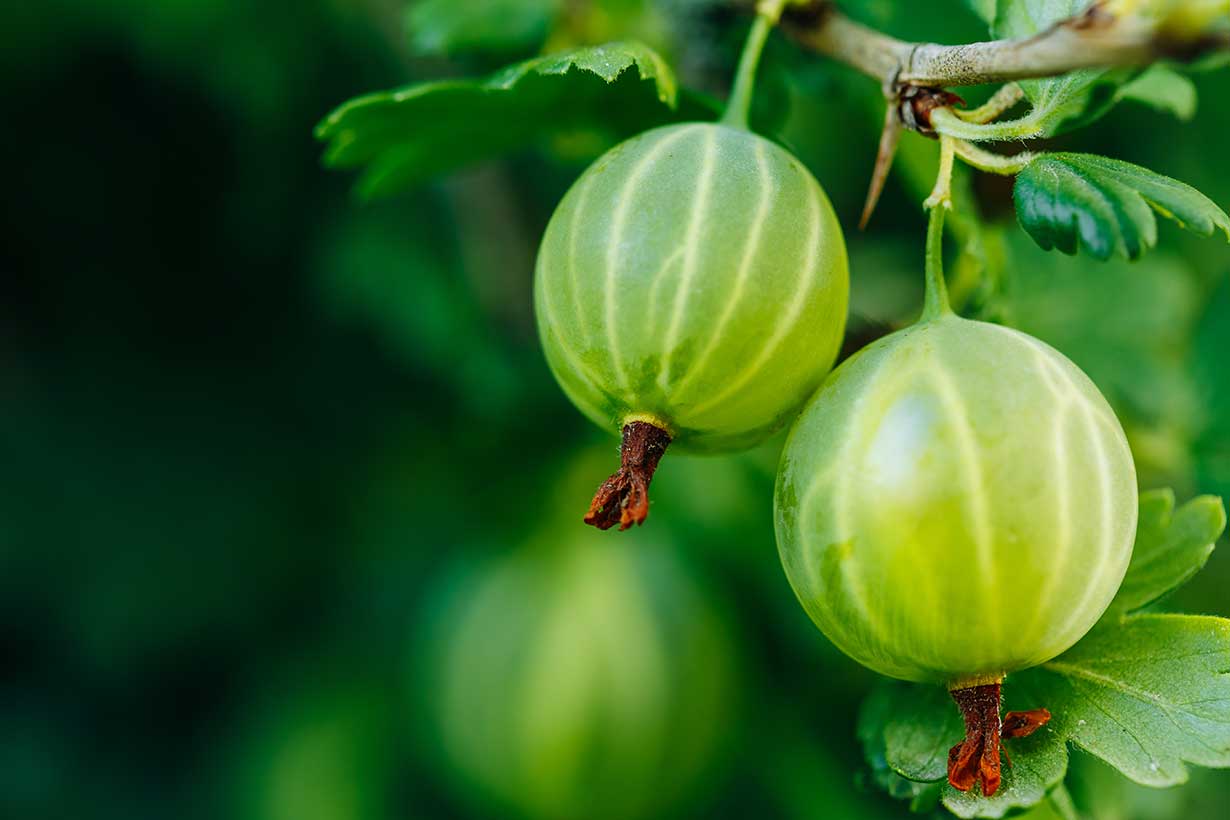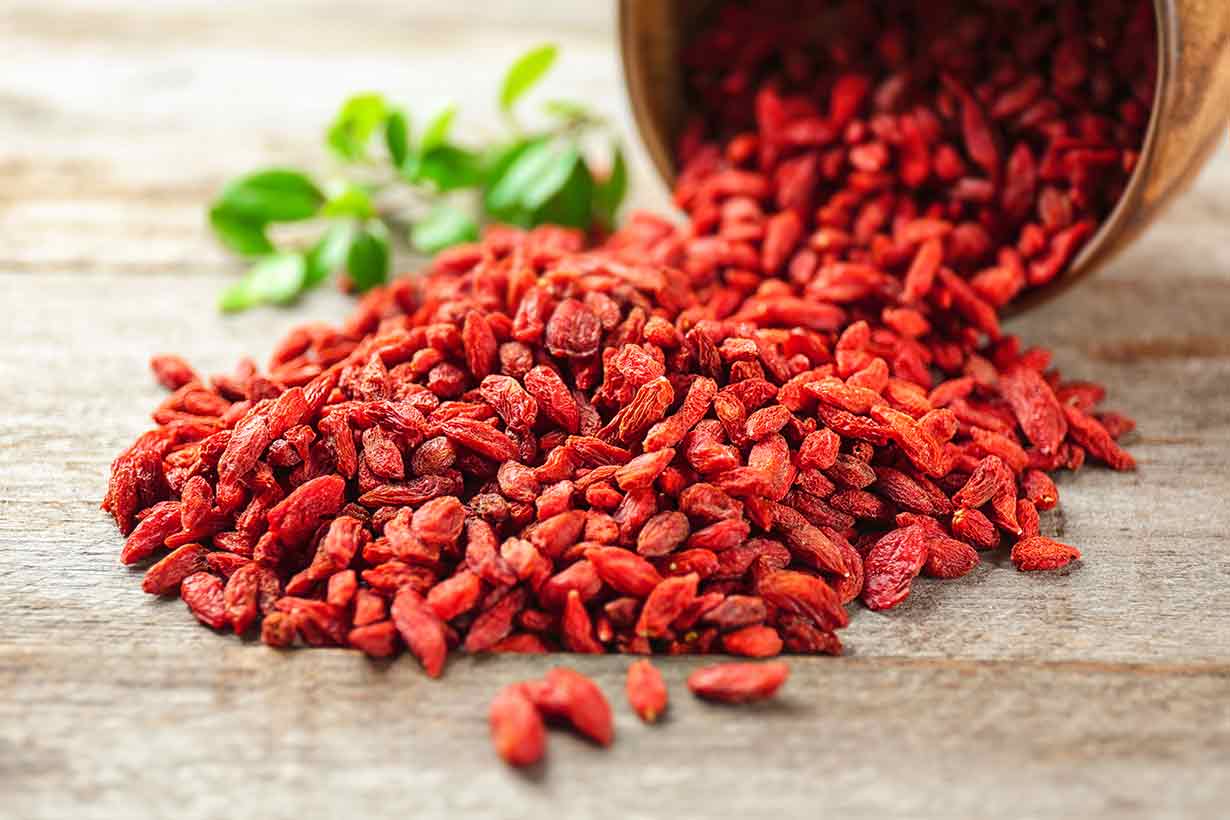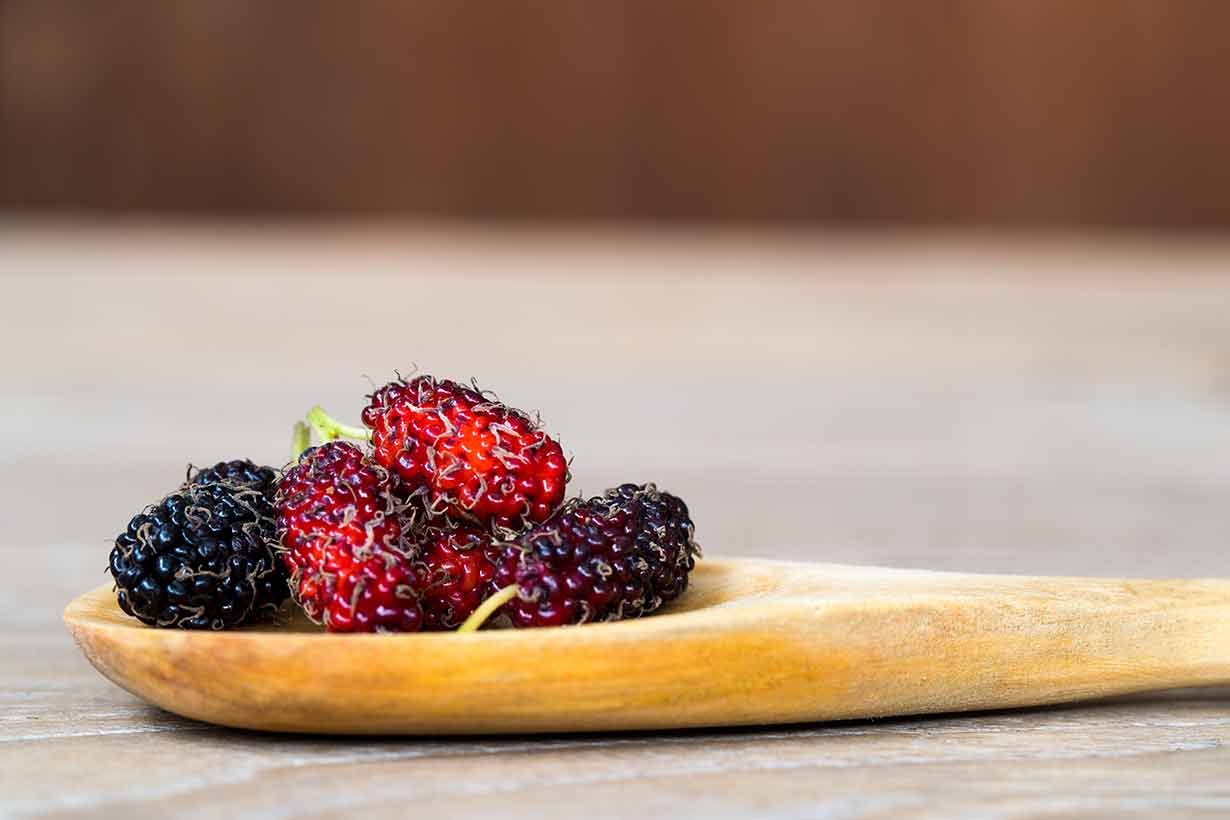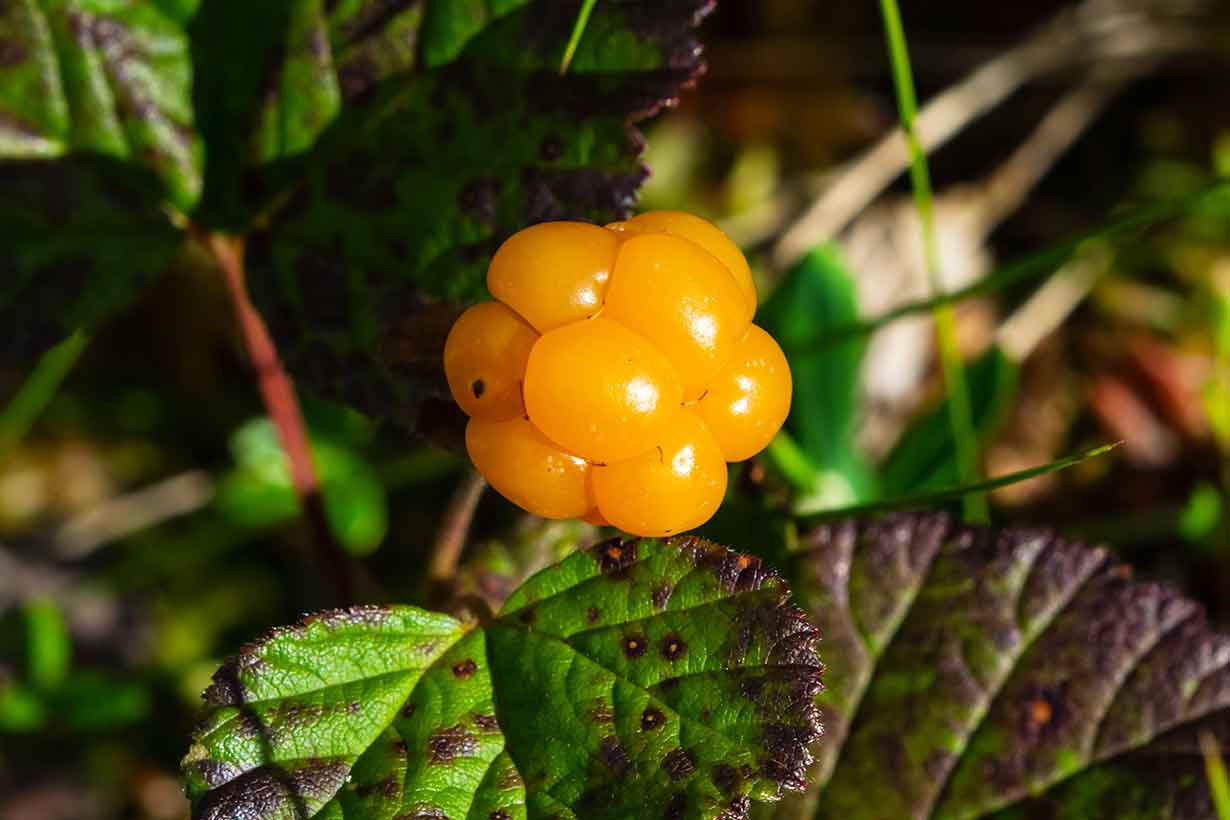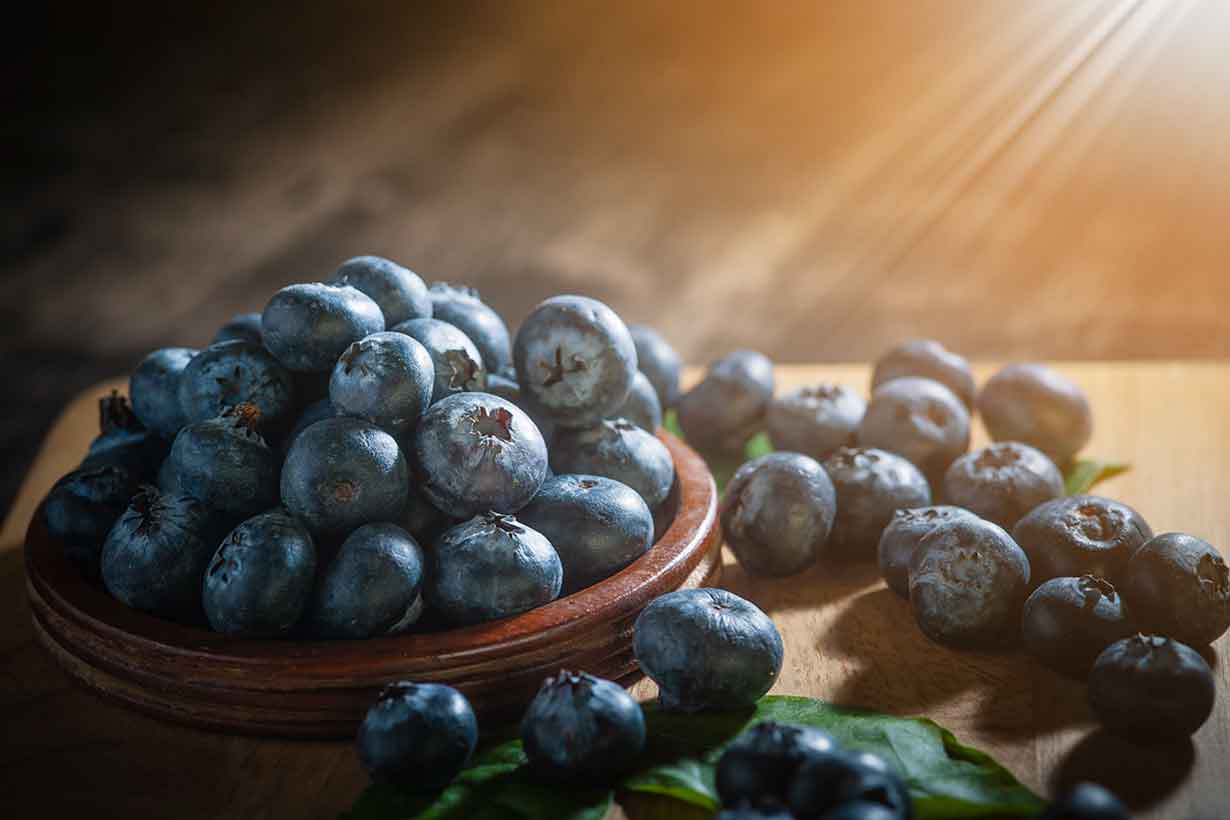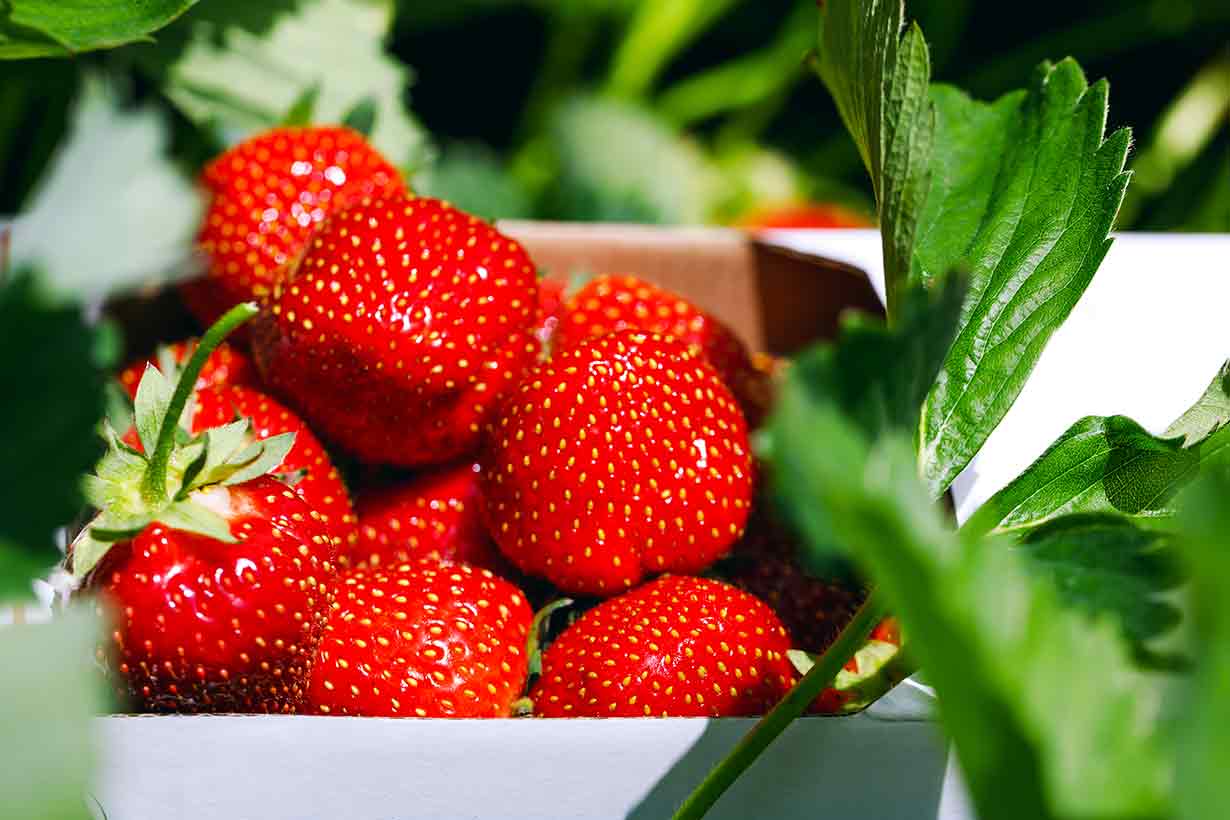Black currants are little berries that grow on the blackcurrant (Ribes nigrum) plant.
These berries are an exceptional source of vitamin C and polyphenols, and they grow around the world.
This article examines the potential benefits of black currants, their nutritional values, and how we can use them.
But first, let’s take a quick look at precisely what black currants are.
What Are Black Currants?
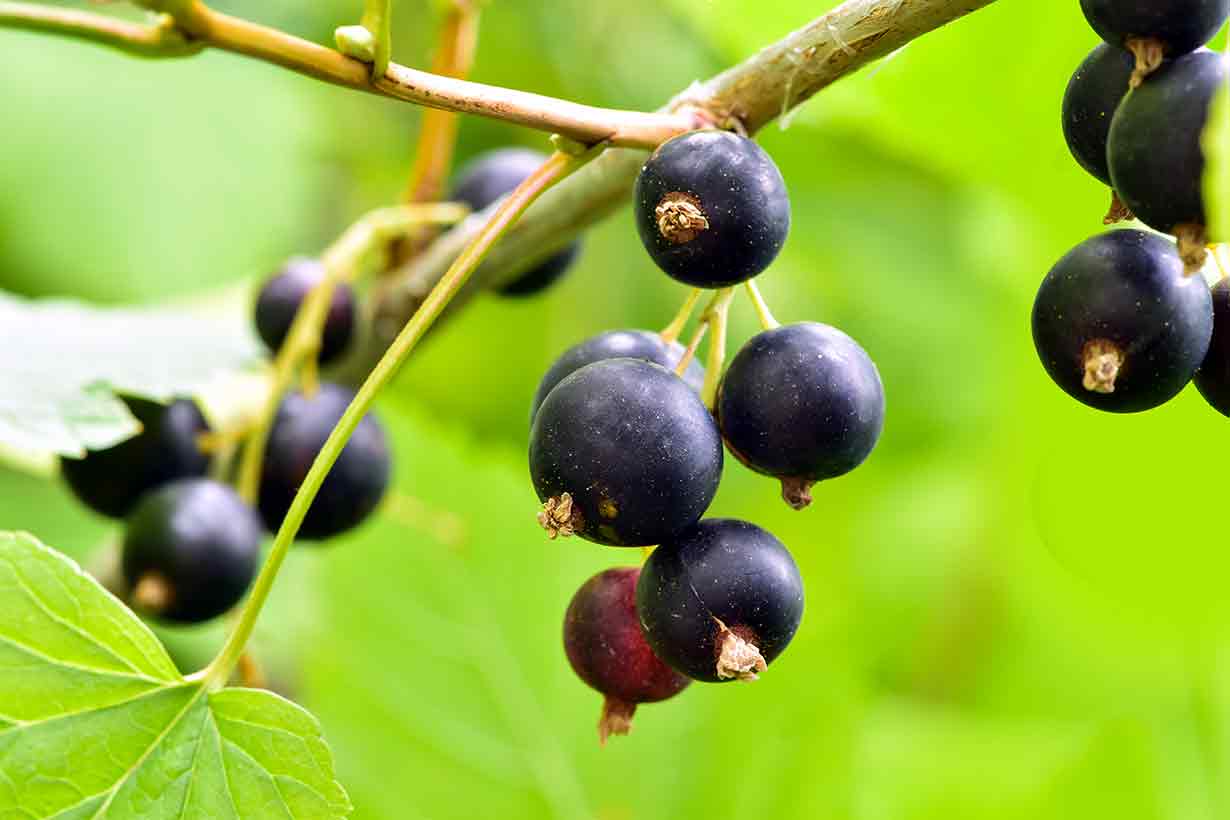
Black currants are small oval-shaped berries with a dark-purple to black appearance and a tart taste.
The image above shows some black currants growing on a blackcurrant plant.
Origin and History
Black currants are thought to have originated in Russia during the 11th century. The berries are now prevalent globally, particularly in Northern Europe and Asia (1, 2).
Despite this, only limited production occurs within the United States.
This is primarily because the industry was destroyed in the early 1900s due to the enactment of a ban on the commercial production of black currants. This ban came about because blackcurrant shrubs could help spread a fungal infection called white pine blister rust (3, 4).
Unfortunately, this infection was a threat to the lucrative timber industry, and the blackcurrant paid the price. The ban remained in place from 1912 to 1966, thus lasting more than fifty years.
Although black currants are currently legal in the United States, the industry is still recovering.
Taste
Black currants have a tart and somewhat astringent taste, which is influenced by both their significant ascorbic acid (vitamin C) and polyphenol (such as tannins) content (5).
It is possible to eat the berries raw, and some people enjoy doing so, but black currants are somewhat of an acquired taste.
In this regard, many people prefer to consume sweetened blackcurrant products. Many blackcurrant products are available, including jams, juices, teas, powdered extracts, and even wine.
Although we think of black currants as one specific berry, there are numerous different cultivars of blackcurrant with slight differences in characteristics (6, 7).
Black Currants Are Extremely High In Vitamin C
Most fruits contain a good amount of vitamin C, but black currants are exceptionally high in the vitamin.
Per 100-gram (3.5 oz) serving, black currants provide 181 mg of vitamin C. This amount is equivalent to 200% of the recommended daily value of 90 mg (8, 9).
To show just how much vitamin C black currants contain, here is how their provision of the nutrient compares to other renowned food sources (8, 10, 11, 12, 13):
- 100 grams of black currants: 181 mg
- Medium orange: 69.7 mg
- Large lemon: 44.5 mg
- Medium bell pepper: 127.7 mg
- 100 grams of strawberries: 58.8 mg
As we can see, black currants are one of the most vitamin-C rich foods in the human diet.
Vitamin C plays a crucial role in the human immune system, and it helps to protect our cells and grow and repair tissues (14).
Additionally, this essential vitamin may potentially have a protective effect against the development of various diseases. On this note, population studies show that individuals maintaining sufficient vitamin C levels have a lower risk of several chronic diseases (15, 16, 17).
A Good Source of Fiber
Per 100-gram (3.5 oz) serving, black currants provide 15.4 grams of carbohydrate, of which 6.8 grams come from fiber (8).
Alongside other berry options such as blackberries, black raspberries, and red raspberries, black currants are among the most fiber-rich fruit.
Fiber can have a range of potential benefits for the human body, and these include:
- Feeding the microbiota: beneficial bacteria residing in the gut feed on fiber (18).
- The digestion and fermentation of fiber by gut bacteria produce beneficial short-chain fatty acids (SCFA), such as butyric acid. These fatty acids can have various beneficial health effects, including lower gastrointestinal inflammation (19, 20).
- Fiber can lower the blood sugar/insulin response to carbohydrate-containing foods (21, 22, 23).
- Higher soluble fiber intake tends to decrease levels of low-density lipoprotein (LDL), which is sometimes referred to as “bad” cholesterol (22).
Black currants contain both soluble and insoluble fiber (23).
According to the guidance daily values developed by the Food and Drug Administration (FDA), the recommended fiber intake is 28 grams per day. Therefore, just 100 grams of black currants provide approximately 25% of fiber’s daily value (8, 9).
Blackcurrants May Help To Improve Blood Pressure and Other Cardiovascular Risk Markers
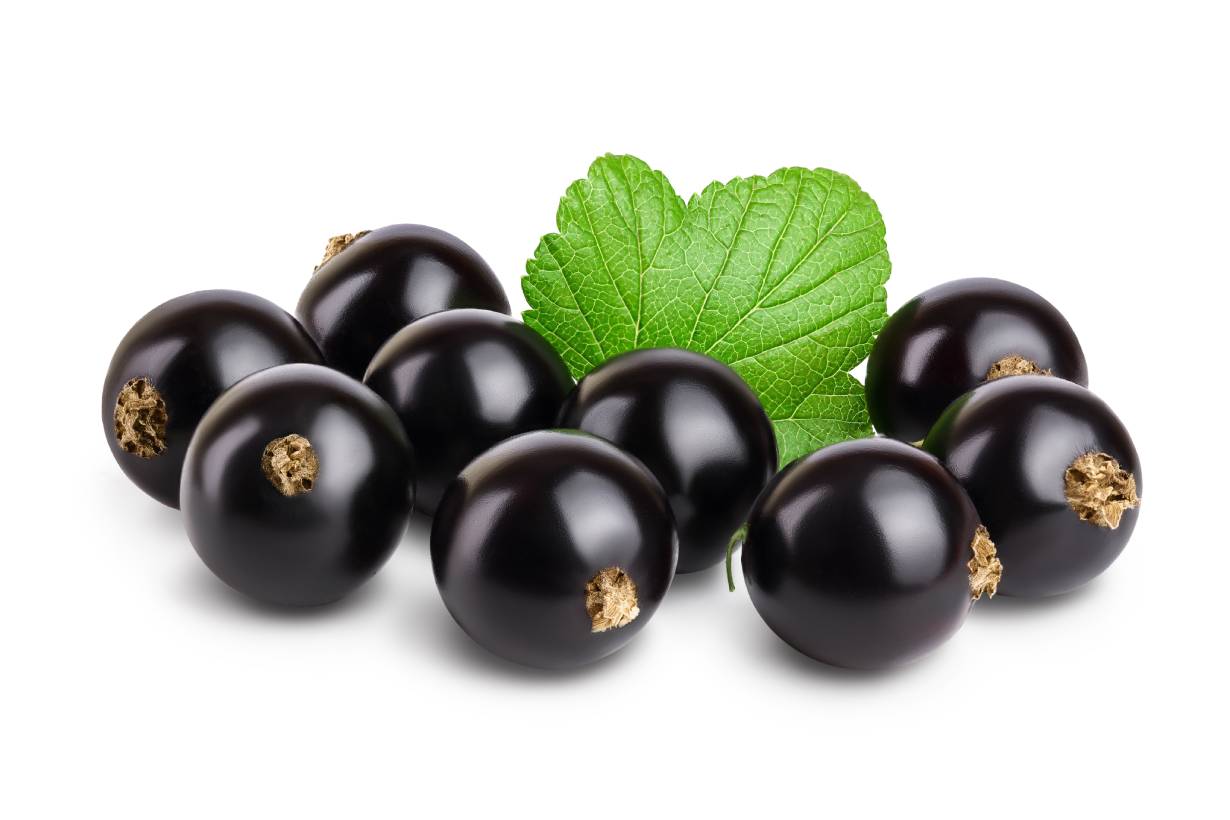
Over recent decades, various berries have shown that they may have a beneficial effect on blood pressure levels and other cardiometabolic risk markers.
Interestingly, some human trials have used blackcurrant to see if the berry could improve these markers.
Here is a summary:
- In a randomized controlled trial, 14 older adults used a blackcurrant extract daily for 7 days. On the seventh day, the blackcurrant group had a lower resting systolic (-6 mmHg) and diastolic (-6 mmHg) blood pressure than the placebo group (24).
- A further study in older adults featured forty participants between the ages of 50 and 70. For five weeks, each participant consumed a daily beverage containing 450 grams of berries (including 50 grams of blackcurrant). A control group consumed a carbohydrate and calorie-matched beverage that didn’t contain fiber or polyphenols. At the end of the five weeks, the berry beverage participants had slightly reduced LDL cholesterol and blood glucose levels compared to baseline and the control group. Lower insulin levels were also reported compared to the control beverage (25).
- A randomized controlled trial examined the effect of blackcurrant extract on insulin sensitivity in twenty-five overweight individuals. In this study, a single dose of blackcurrant extract did not affect postprandial (post-meal) blood glucose, insulin, or triglycerides on day one. However, following daily supplementation, significant reductions in these markers were apparent after a meal was assessed on day eight (26).
The researchers speculated that these effects were likely due to black currants’ dietary fiber and polyphenol content.
The strength of evidence for these effects is relatively low
Further research is necessary as there have been few clinical human trials, each with a relatively small number of participants. One of the trials featured a range of berries rather than solely black currants.
May Slightly Improve Exercise Performance
Mixed evidence exists on the potential benefits of blackcurrant on exercise performance.
Black currants are a rich source of anthocyanins, a type of flavonoid polyphenol thought to benefit exercise performance and recovery (27).
Here is a summary of findings (alongside the references) for existing randomized controlled trials investigating the potential benefits of black currants in this area:
- Blackcurrant extract slightly improves short-distance performance times/speed in professionally trained athletes (28, 29).
- However, randomized controlled trials on blackcurrant extract show either inconsistent or no benefit for speed-duration during high-intensity exercise (30, 31).
- Blackcurrant extract appears to increase fat oxidation rates during exercise (32).
- A randomized controlled pilot study demonstrated that black currants might improve exercise recovery by promoting anti-inflammatory events during the post-exercise period (33).
A systematic review and meta-analysis published in the Journal of the International Society of Sports Nutrition considered all the available evidence. They concluded that “blackcurrant has a small, but significant, effect on sports performance” (34).
Drawbacks
Are there any potential downsides of blackcurrant consumption?
On the positive side, it appears that the risk of allergy is remote. The Journal of Allergy and Clinical Immunology notes that although similar fruits can be a common cause of allergies, no allergy to blackcurrant has yet been reported (35).
Perhaps the biggest drawback of black currants is that some people find them too bitter/tart to consume alone.
In this case, people may consume sugar-sweetened blackcurrant products as an alternative. Due to the added sugar, such products may not be as nutritionally beneficial as other fresh berries.
This really depends on personal taste preference; some people enjoy tart berries like blackcurrants and cranberries, while others don’t enjoy them in their unsweetened form.
Full Nutrition Facts
For reference, here are the full nutritional values for black currants per 100-gram (3.5 oz) serving.
All the nutritional data is courtesy of the USDA’s FoodData Central database, and the daily values have been calculated using the FDA’s daily values (8, 9).
| Name | Amount | % Daily Value |
|---|---|---|
| Calories | 63 kcal | 3.2% |
| Carbohydrate | 15.38 g | 5.1% |
| Fiber | 6.78 g | 24.2% |
| Sugars | 6.67 | |
| Fat | 0.41 g | 0.6% |
| Saturated | 0.03 g | 0.2% |
| Monounsaturated | 0.06 g | |
| Polyunsaturated | 0.18 g | |
| Omega-3 | 0.03 g | |
| Omega-6 | 0.11 g | |
| Protein | 1.40 g | 2.8% |
Vitamins
- Vitamin C: 201% of the daily value
- Vitamin K: 25% DV
- Pantothenic Acid (B5): 8% DV
- Vitamin E: 7% DV
- Thiamin (B1): 4% DV
- Vitamin B6: 4% DV
- Riboflavin (B2): 4% DV
- Folate: 2% DV
- Niacin (B3): 2% DV
- Choline: 1% DV
- Vitamin A RAE: 1% DV
Minerals
- Manganese: 11% DV
- Copper: 10% DV
- Iron: 9% DV
- Potassium: 7% DV
- Magnesium: 6% DV
- Phosphorus: 5% DV
- Calcium: 4% DV
- Zinc: 2% DV
- Selenium: 1% DV
- Sodium: <1% DV
Phytonutrients
Black currants are a significant source of dietary polyphenols.
These berries provide particularly large quantities of (36):
- Flavonoids: anthocyanins, flavanols, and flavanols such as quercetin and myricetin.
- Phenolic acids: hydroxybenzoic acids and hydroxycinnamic acids, such as caffeoylquinic acids.
Research has shown that, alongside blueberries, black currants contain more significant amounts of anthocyanins than other berries (37).
Glycemic Index
According to research published in the British Journal of Nutrition, black currants have a glycemic index of 22. Per typical 100-gram serving, this equates to an estimated glycemic load of 2 (38).
How To Use Black Currants
Aside from all the common commercial products, here are some ways we can use black currants at home:
- Eat them fresh: Like any other berry, just eat them raw if you like the taste.
- Make a tea: blend 00 grams of black currants with water, add a sweetener if desired, and then boil.
- Juice: blend 100 grams of black currants with water, add sweetener if desired, and then drink. Add some sweeter berries, such as raspberries and strawberries, if wanting a sweeter taste.
- Make a jam: black currants are a popular fruit for making jam. There is a simple recipe for blackcurrant jam here.
- In cooking: adding black currants to a savory sauce adds a unique flavor to sauces for fish and meat dishes.
For some more recipe ideas on savory and sweet cooking with black currants, the BBC Good Food website has some ideas here.
Final Thoughts
Black currants offer a wealth of vitamin C, and they are one of the most polyphenol-rich foods.
While the breadth of research on blackcurrant is relatively small, evidence suggests they may have slight beneficial effects on blood pressure and sporting performance.
Their flavor can be a little bit tart, but they offer many nutritional benefits for those that enjoy the taste.


